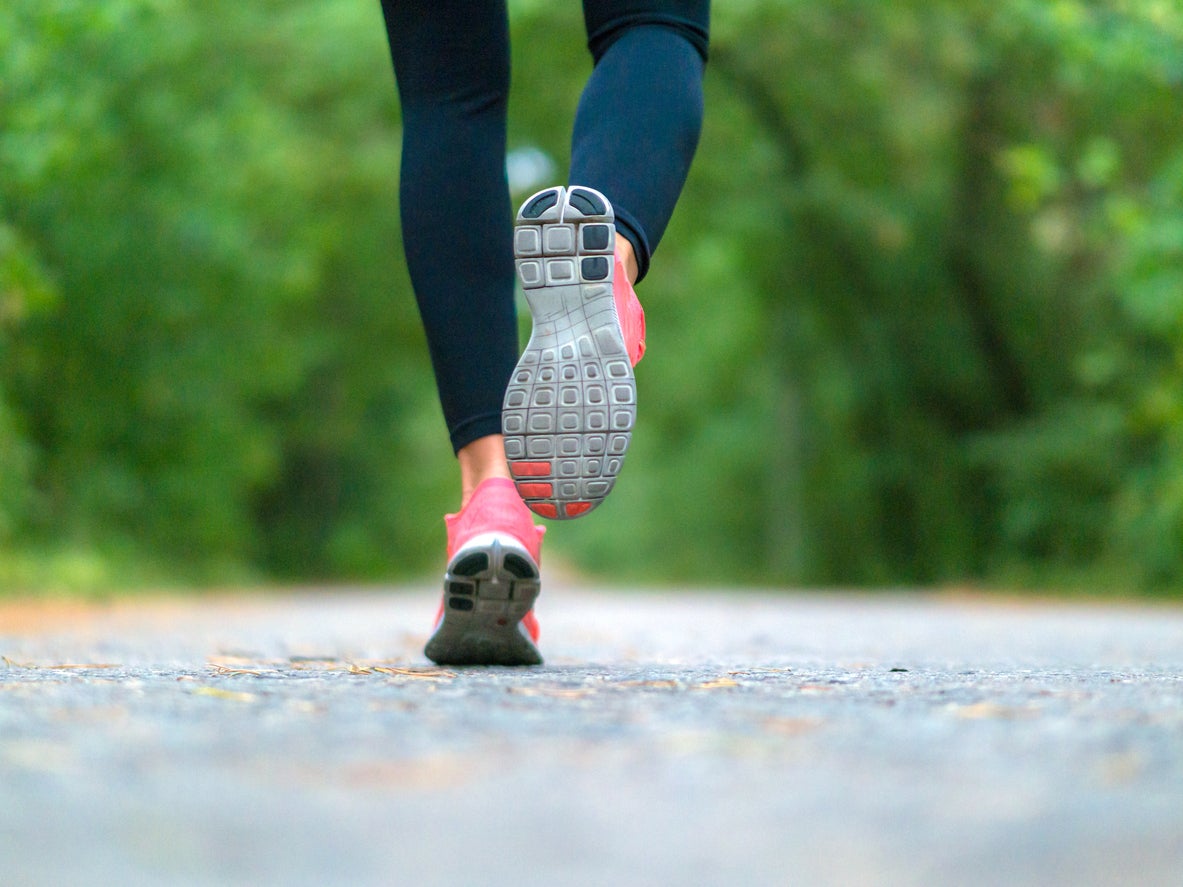Anxiety made me quit running – the pandemic helped me love it again
There’s no quick fix for nausea caused by anxiety, but every run begins with a single step

Your support helps us to tell the story
From reproductive rights to climate change to Big Tech, The Independent is on the ground when the story is developing. Whether it's investigating the financials of Elon Musk's pro-Trump PAC or producing our latest documentary, 'The A Word', which shines a light on the American women fighting for reproductive rights, we know how important it is to parse out the facts from the messaging.
At such a critical moment in US history, we need reporters on the ground. Your donation allows us to keep sending journalists to speak to both sides of the story.
The Independent is trusted by Americans across the entire political spectrum. And unlike many other quality news outlets, we choose not to lock Americans out of our reporting and analysis with paywalls. We believe quality journalism should be available to everyone, paid for by those who can afford it.
Your support makes all the difference.After the pandemic forced the closure of gyms last year, I was one of the many people who decided that it was the perfect opportunity to start running for my mental health. As Bella Mackie’s influential book Jog On proves, running can help to combat a whole host of mental health problems, especially anxiety. Mackie recalls running until her anxious thoughts quieted, until “the pit in my stomach wasn’t raw”.
But what if running only seems to aggravate the pit in your stomach?
When I was 14, I joined a middle-distance running club, training at a local track once a week. I wasn’t very good at it – I mainly joined because one of my friends went – but I enjoyed the freeing feeling of running and making friends at training. After a while, I saw improvements in my ability, and my coach suggested that I have a go at competing.
It was around this time that I started feeling sick whenever I ran. It would begin as an unsettled feeling in my stomach, then grow until I was eventually retching to throw up as I tried to push myself through the nausea. At the doctor’s, I was met with confusion and told to do some blood tests, which of course returned no answers. The more I tried to fight the nausea, the worse it got – so I eventually just gave up on running.
Looking back, it was obvious that what I was experiencing was anxiety around running, as since then, I’ve struggled with the physical effects of anxiety in other areas of my life. This came to a head during my A-levels, when I had to go into my English literature exam half an hour late because I was vomiting on the pavement outside of my sixth form college.
But as a young teenager, I was less aware of how anxiety can cause nausea. As sports psychologist Dr Josephine Perry explains, “anxiety has a very powerful physical impact on our body”. This can be especially true in competitive sport, when the amygdala – the part of the brain which tells us to fight, flight or freeze in the face of danger – can be unnecessarily triggered.
“When you’re at a running track, it might be that you’ve got people putting certain expectations on you, or you’ve developed your own expectations. Each time there’s a chance you might not hit those expectations, your amygdala will go off because there’s a threat to who you are if you fail,” says Perry. This causes cortisol and adrenaline to be released in the body, which can result in nausea, as well as headaches and tight muscles.
Thankfully, leaving the track and starting again as an amateur allowed me to fall back in love with running, and to begin to feel its benefits on my mental health. Importantly, though, it hasn’t always been an easy transition. While going for a run around the park obviously removes the competitive “threats” of the track, it can still cause an anxious response. Even now, I often find myself facing that all-too-familiar nausea when I run.
“Some of the culture around running is unhelpful,” Perry reminds us. Seeing others share their running progress on apps such as Strava can be particularly damaging. “One of the problems with things like Strava is we don’t measure the things that matter. When you’re an amateur runner, what time you get does not matter – what matters is whether you enjoyed it and whether you feel better afterwards.”
Ditching these unhelpful comparisons, and instead focusing on the reasons why you like to run, is key to beating running anxiety. “Work out what really matters to you about running and turn those thoughts into a short mantra,” recommends Perry.
Personally, I run because it makes me feel strong and reminds me that I can do hard things. If I can run for an hour without stopping, then I feel more than capable of overcoming the worries I face in my everyday life. Once I focus on this reason, my anxiety slowly melts away.
Getting to the point I’m at with running now wasn’t easy – if you told me seven years ago that I’d one day be able to run 10k quite happily, I would have laughed in your face. But this journey has taught me an important lesson: there is no quick fix for anxiety. It’s something you simply have to learn to live with. Much like running itself, you just keep have to keep putting one foot in front of the other, until it eventually starts to feel easier.




Join our commenting forum
Join thought-provoking conversations, follow other Independent readers and see their replies
Comments